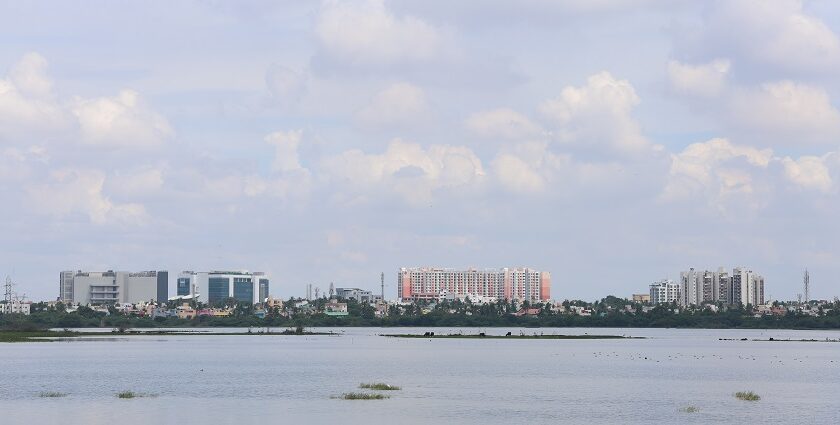In property development, construction speed plays a crucial role in shaping the reputation of a company. Especially in a city like Chennai where urban growth continues to expand, timely project delivery has become a critical benchmark for evaluating the reliability of a developer.
Let us look at how construction timelines directly impact the standing of even the best property developer in Chennai and how it affects buyer confidence, sales potential, and long-term credibility.
Buyer Confidence and Expectations
When a buyer decides to invest in a property, one of the primary expectations is timely possession. People often make such decisions based on personal timelines—relocation, financial planning, or investment purposes. If a developer delays construction, it directly impacts the buyer’s trust in the brand.
For the best property developer in Chennai, maintaining scheduled delivery is essential. Any deviation from promised timelines raises doubts, no matter how well-known the brand might be. Buyers may start questioning the builder’s process, resource management, or even financial standing. This results in hesitation and often leads them to explore alternatives in the market.
Impact on Sales and Pre-Bookings
Reputation affects sales—and sales depend on reputation. When construction is completed on time or earlier than expected, it encourages more pre-bookings in upcoming projects. People prefer developers who have a history of timely delivery because it lowers their risk.
In Chennai, where competition is high among developers, project delays can cost heavily in terms of both lost sales and higher marketing efforts. A buyer who has faced construction delays is less likely to recommend the brand to others. Word-of-mouth marketing takes a hit, and sales teams must work harder to bring in leads.
On the other hand, if a developer is consistent in completing projects on schedule, the trust level increases. This trust not only brings in repeat customers but also encourages referrals, which helps in faster sales closure.
Legal and Financial Implications
Delayed projects often lead to legal troubles. Buyers may file complaints or seek refunds, especially when the delay stretches beyond what was communicated. This brings unwanted attention to the developer and affects future projects.
From a financial standpoint, delays increase construction costs. Prices of materials may go up, labor expenses increase, and penalties may apply based on agreements. For the best property developer in Chennai, maintaining cash flow and financial stability is closely linked to timely project delivery.
Moreover, lenders and financial institutions also watch the construction timeline. If a developer frequently delays projects, banks may hesitate to approve future loans or limit funding. This puts added pressure on internal resources and disrupts future planning.
Influence on Vendor and Contractor Relationships
A property developer cannot function efficiently without reliable vendors and contractors. If a company keeps extending deadlines, it affects the schedule of subcontractors, suppliers, and workers. Over time, this strains professional relationships.
For a top developer in Chennai, it is important to maintain healthy ties with contractors. Skilled workers are in high demand and they prefer working with firms that value timelines. Continuous delays can push these experts to move to other projects or developers. This leads to workforce instability and potential quality issues in construction.
Perception in the Market
Reputation is not only built by advertisements but also by track record. A developer with repeated delays in project delivery will find it difficult to maintain a positive image in the property market.
In Chennai, homebuyers are well-informed. They research project history, check completion records, and even look up customer feedback before finalizing a builder. If construction delays appear in multiple past projects, it becomes hard to convince new buyers. Even if the construction quality is good, buyers hesitate if they fear postponements.
Therefore, the speed at which a project moves matters. It shows how efficiently a developer can plan, manage, and deliver large-scale work. For the best property developer in Chennai, this performance becomes a reference point in discussions, reviews, and online forums.
Role in Retaining Investor Interest
Investors look for returns, and in real estate, time plays a huge role in determining profitability. If a project takes longer to complete, it pushes back rental income or resale value. Investors who face such delays once may not consider the same developer for future opportunities.
This is especially important in the premium residential and commercial property segments where investments are high. Delivering on time creates a reputation of reliability and attracts more capital inflow in future projects. On the contrary, missing timelines can permanently drive away serious investors.
How Developers Can Stay on Track
Construction speed is influenced by multiple factors—planning, approvals, labor availability, funding, and even weather. But the best property developer in Chennai invests time and resources in mitigating these risks at the planning stage itself.
Some of the ways developers maintain speed include:
- Starting groundwork only after receiving all major approvals
- Working with experienced project managers
- Choosing suppliers with a track record of timely delivery
- Using modern construction techniques for faster execution
By taking responsibility at every level of the project, developers can reduce delays and avoid blame-shifting. It is this sense of accountability that strengthens their brand in the long run.
Conclusion
Construction speed is more than a schedule—it is a reputation marker. It influences buyer trust, project sales, financial planning, and even market perception. For the best property developer in Chennai, maintaining a strong record of timely delivery is essential to hold their position in a highly competitive space.
By valuing construction timelines, a developer proves commitment to customers and stakeholders. This results in sustained growth and long-term credibility in the industry.

